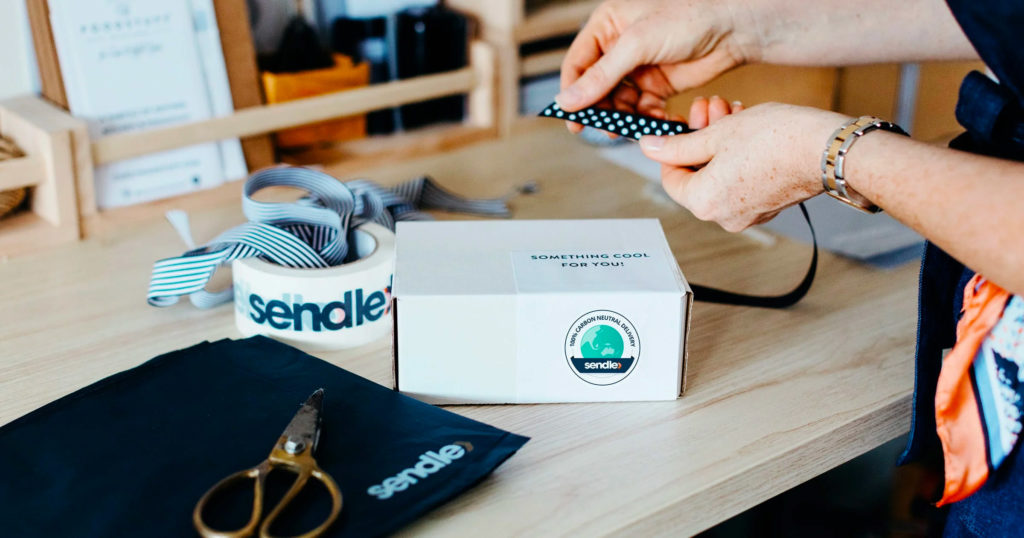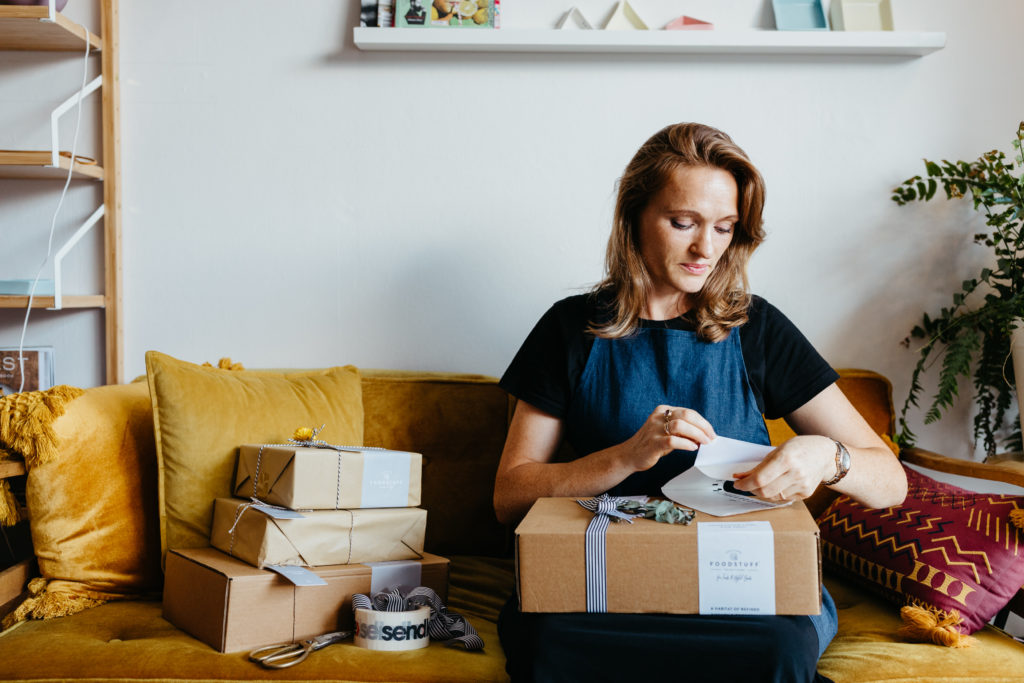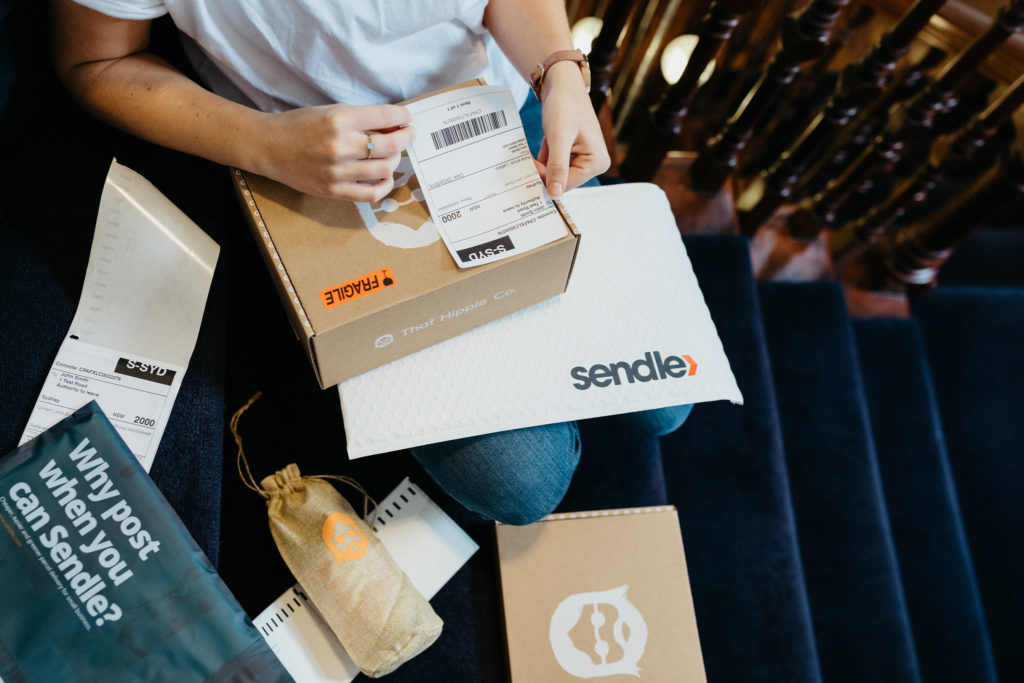As a proud B Corp and Australia’s first 100 per cent carbon-neutral delivery service, Sendle was built for the needs of small business. But it didn’t necessarily start out that way. Hear from Founder and CEO James Chin Moody as he takes us ‘Behind the B’ with Dumbo Feather’s Nathan Scolaro to uncover what makes a B Corp a better business.
I’ve always been a fan of the concept that you need to be driven by a deeper purpose. If you can’t articulate why your business should exist, and the positive impacts you want it to have, then you’re not building it to last.
Sometimes your purpose can evolve, though.
Sendle didn’t start off as a logistics company; we began as a giving marketplace, where people could give away things they no longer needed. But it turned out that what was most important was getting the items from one person to another, rather than the items themselves.
We realised that the problems we were having were exactly the same as the problems facing every other single online marketplace and every small business e-commerce seller.
Postage was expensive and lining up at the post office was inconvenient. So, we thought: how can we make it possible for small businesses to compete on a level playing field with ‘the big guys’ in the logistics space?

In essence, we were lucky because we were our first customer. We knew we had to solve logistical problems for ourselves, first, and then we could unlock those learnings for our customers. But the more we peeled back the onion, so to speak, the more we realised that Australia had a functional monopoly for parcel delivery.
The playing field was not even for small business.
Like other small players, we had to line up at the post office and pay more than $40 to send 10kgs from one capital city to another. But there was no way it was costing the big retailers that much. So, we set out to create equitable access to logistics services for small businesses.
Whether that’s by not requiring a subscription or minimum shipping volume, or by keeping our rates simple and shipping easy to use, Sendle has been on a mission to empower tens, if not hundreds of thousands of small businesses all over Australia – and now the US – to compete in the world of e-commerce since 2014. And, to provide shipping that’s good for the world.
Businesses now tell us they couldn’t exist without us, because of the time we’re saving them or because postage would be too expensive. That’s my favourite kind of feedback: ‘I don’t think my business would be here, if you didn’t do what you do.’
We know the world is embracing e-commerce and we think that’s a great thing. At the same time, we knew we needed to mitigate the harm – the carbon emissions created by shipping those products.

From day one, every parcel we’ve sent has been 100% carbon neutral. We’ve now sent parcels over 35 billion kilometres — further out than the Voyager probe, without adding carbon emissions.
One of the curious things was that the moment we started talking about being carbon neutral, everyone assumed we would be more expensive. But we’re actually cheaper.
We get the rates down by filling idle capacity courier networks. We figured out that there are large logistics companies that generally won’t deliver for small business, but they are delivering for big retailers, and their vans are often going back to the depots empty. We realised we could fill those trucks.
By finding waste and doing something useful with it, you can create business models that are better for the planet and benefit consumers – and providers – at the same time.
In Sydney, we’re now moving to a 100% electric vehicle fleet. While the trucks are sitting there being loaded or unloaded, we’re using solar energy from the roof of the depot, which otherwise would be wasted, to refuel the batteries.

I’m a former systems engineer and a satellite engineer. I love models, I like to understand how systems work. I think this goes right to the very heart of being a B Corp.
You have to look at the bigger picture and see how everything is connected.
In the short term, we’re spending quite a lot of money to offset the parcels. But there are long-term benefits. We’re de-risking the whole business from climate change. We’re helping our small business customers to sell more because they can talk to their customers about the fact that their deliveries are carbon neutral.
That’s one of the most interesting things about being a B Corp — you make decisions with all stakeholders in mind. Even if there are trade-offs in the short-term, in the long-term, you end up with a much stronger and sustainable business.
Words by James Chin Moody
A big thank you to James Chin Moody, Founder of Sendle, and Nathan Scolaro for helping put this piece together for Dumbo Feather magazine. Look out for Issue #69 on shelves shortly, or grab yourself a subscription here.
A version of this piece was published as part of B Corp Month 2022 as we invite you #BehindTheB to uncover what makes a B Corp a better business.

